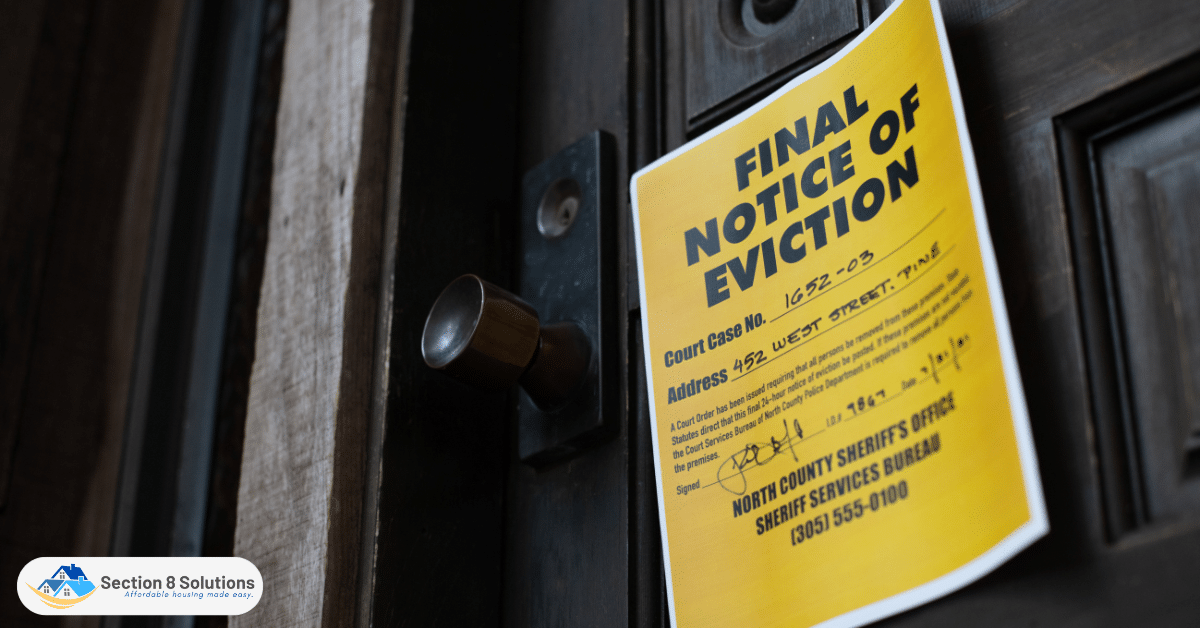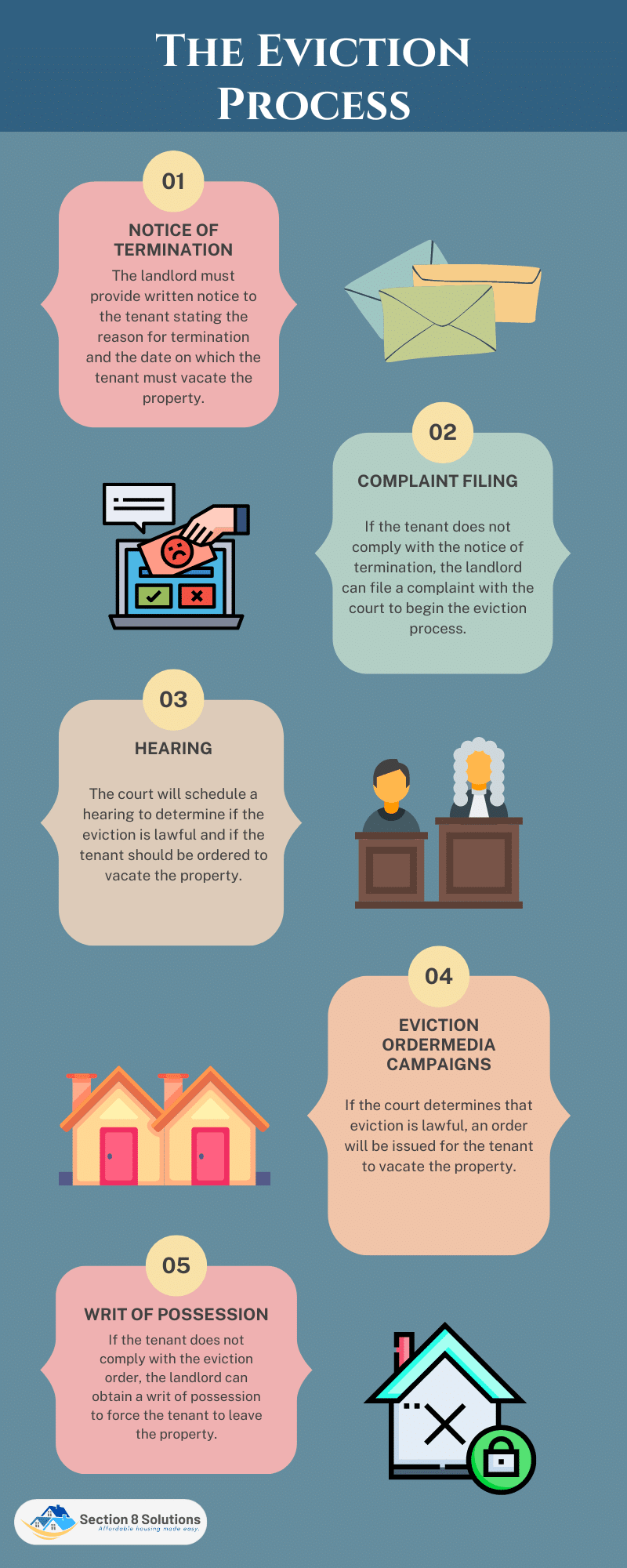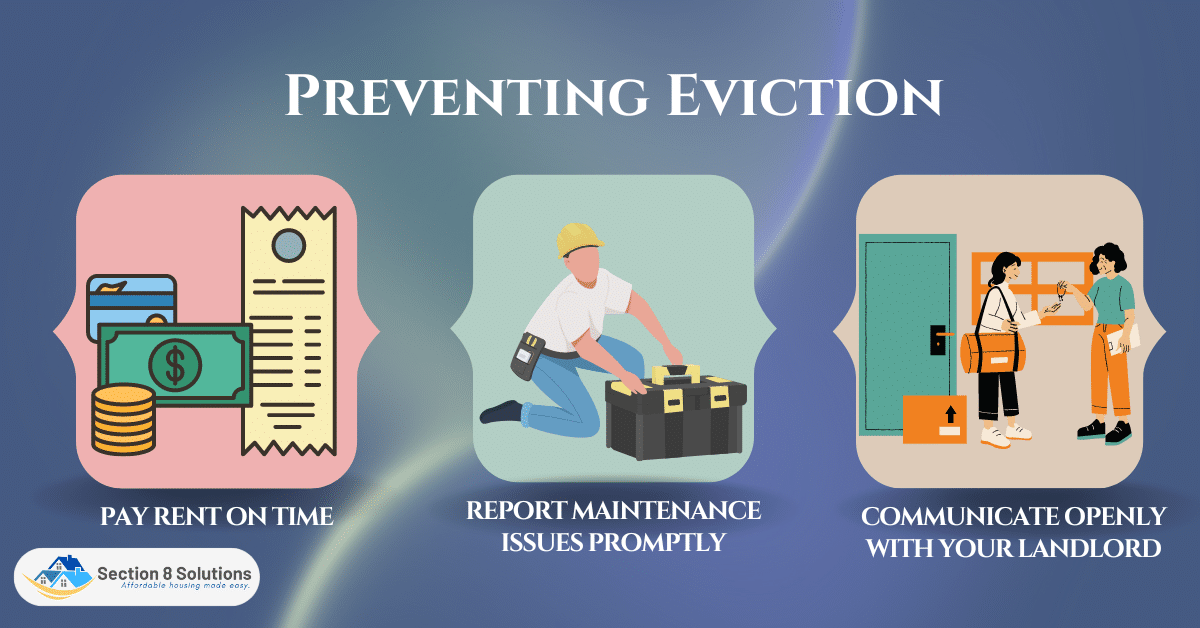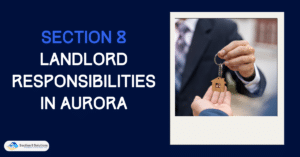Eviction from Section 8 Housing is a serious issue for low-income families in Pittsburgh. Reasons for eviction vary, and tenants should understand their legal rights and protections. Resources are available to prevent eviction and support tenants facing this situation. Tenants and landlords can work together to ensure access to safe and affordable housing in the city.
In this article, we will explore the reasons why tenants may be evicted from Section 8 Housing, the eviction process in Pittsburgh, and the rights and protections available to tenants facing eviction. We will also offer tips for preventing eviction and highlight resources available to tenants and landlords alike.

Reasons for Eviction from Section 8 Housing
Eviction from Section 8 Housing is a serious issue that can lead to homelessness, displacement, and the loss of social connections. There are several reasons why a tenant may face eviction, and it is important to understand them to prevent eviction and protect tenants’ rights.
Reasons for Eviction:
- Failing to pay rent or late payments
- Violating the lease agreement, such as subletting without permission or having unauthorized occupants
- Causing damage to the property, such as intentional or unintentional destruction of the unit or common areas
- Engaging in criminal activities, such as drug-related offenses, assault, or weapons possession
Misconceptions about Eviction:
- The belief that landlords can evict tenants without a court order
- The belief is that landlords can evict tenants without giving proper notice
- The belief that landlords can change locks or cut off utilities to force tenants to leave
Understanding the reasons for eviction and the legal protections available can help tenants prevent eviction and protect their rights. It is important to seek assistance from legal aid organizations and tenant advocacy groups if facing eviction from Section 8 Housing.

The Eviction Process
The eviction process for Section 8 Housing in Pittsburgh can be complex and stressful. It is important for tenants to understand the steps involved and their legal rights to ensure a fair and just process.
Steps in the Eviction Process:

- Notice of Termination: The landlord must provide written notice to the tenant stating the reason for termination and the date on which the tenant must vacate the property.
- Complaint Filing: If the tenant does not comply with the notice of termination, the landlord can file a complaint with the court to begin the eviction process.
- Hearing: The court will schedule a hearing to determine if the eviction is lawful and if the tenant should be ordered to vacate the property.
- Eviction Order: If the court determines that eviction is lawful, an order will be issued for the tenant to vacate the property.
- Writ of Possession: If the tenant does not comply with the eviction order, the landlord can obtain a writ of possession to force the tenant to leave the property.
Role of the Courts and Rights of Landlords and Tenants:
The courts defend landlords’ and tenants’ rights during evictions. Landlords can file complaints and attend hearings to evict tenants, but tenants can defend themselves. Tenants have the right to a safe and habitable home, due process, and court challenges to eviction notices.
A fair and impartial Section 8 Housing eviction process in Pittsburgh requires knowledge of landlord and tenant rights. Tenants who are facing eviction should seek legal assistance and advocacy to protect their rights and prevent homelessness.
Tenant Rights and Protections
Tenants living in Section 8 Housing have legal rights and protections that are designed to ensure they have access to safe and affordable housing. Understanding these rights can help tenants prevent eviction and protect their housing security.
Tenant Rights and Protections:
- Right to Due Process: Tenants have the right to receive proper notice of eviction, attend a hearing, and present their case before a judge.
- Right to a Safe and Habitable Living Space: Tenants have the right to live in a dwelling that is free from hazards, such as mold, lead, and structural problems.
- Right to Challenge an Eviction Notice in Court: Tenants have the right to challenge an eviction notice in court and defend themselves against allegations of wrongdoing.
Resources Available to Tenants:
- Legal Aid Organizations: There are several legal aid organizations in Pittsburgh that offer free or low-cost legal services to tenants who are facing eviction.
- Tenant Advocacy Groups: These groups provide support and advocacy to tenants, including help with negotiating with landlords, understanding tenant rights, and finding alternative housing options.
Tenants who are facing eviction have legal rights and protections that are designed to ensure they are treated fairly and justly. Seeking assistance from legal aid organizations and tenant advocacy groups can help tenants prevent eviction and protect their housing security.

Preventing Eviction
Preventing eviction is important for both tenants and landlords. Eviction can be costly, stressful, and disruptive, and it can result in the loss of housing security for tenants. There are several practical tips that tenants and landlords can follow to prevent eviction and maintain a positive landlord-tenant relationship.
Tips for Tenants:

- Pay Rent on Time: Paying rent on time is essential for maintaining a positive relationship with your landlord and avoiding late fees or legal action.
- Report Maintenance Issues Promptly: Reporting maintenance issues promptly can prevent them from becoming larger problems and demonstrate to your landlord that you are a responsible tenant.
- Communicate Openly with Your Landlord: Open and honest communication with your landlord can help you resolve any issues or concerns and prevent misunderstandings.
Tips for Landlords:
- Set Clear Expectations with Tenants: Clearly communicating your expectations with tenants can help prevent misunderstandings and disputes.
- Provide Resources for Financial Assistance: Providing information on local resources for financial assistance, such as rental assistance programs, can help tenants avoid falling behind on rent.
- Offer Mediation Services: Offering mediation services can help resolve disputes between tenants and landlords before they escalate to eviction proceedings.
Preventing eviction is in the best interest of both tenants and landlords. Tenants and landlords can avoid eviction and maintain a good relationship by paying rent on time, reporting maintenance issues, and communicating. By defining expectations, providing financial aid, and offering mediation, landlords can avert eviction.
Exceptions
There are various reasons a landlord can end a tenancy. If HUD, the landlord, or the landlord with HUD’s approval decides to radically renovate, demolish, or sell the project, the foregoing may not apply.
Moreover, a landlord may occasionally quit offering a particular type of subsidized housing. If your landlord intends to do this, they are required to notify you in writing. You can find another cheap home, contest your landlord’s decision to terminate subsidized housing, or stay where you are.
You could have alternative options even if the landlord modifies the type of subsidized housing. For instance, residents are given Section 8 tenant protection coupons when owners choose not to renew their project-based Section 8 lease.

Conclusion
Eviction from Section 8 Housing is a serious issue that can lead to homelessness, displacement, and the loss of social connections. It is important for tenants to understand their legal rights and protections and to seek assistance if facing eviction. The courts play an important role in ensuring that both landlords and tenants have their legal rights protected.
Resources are available for tenants and landlords to help prevent eviction and ensure access to safe and affordable housing in the city. Understanding the reasons for eviction, the eviction process, rights and protections, and tips for prevention can help tenants and landlords maintain a positive relationship and prevent eviction.












